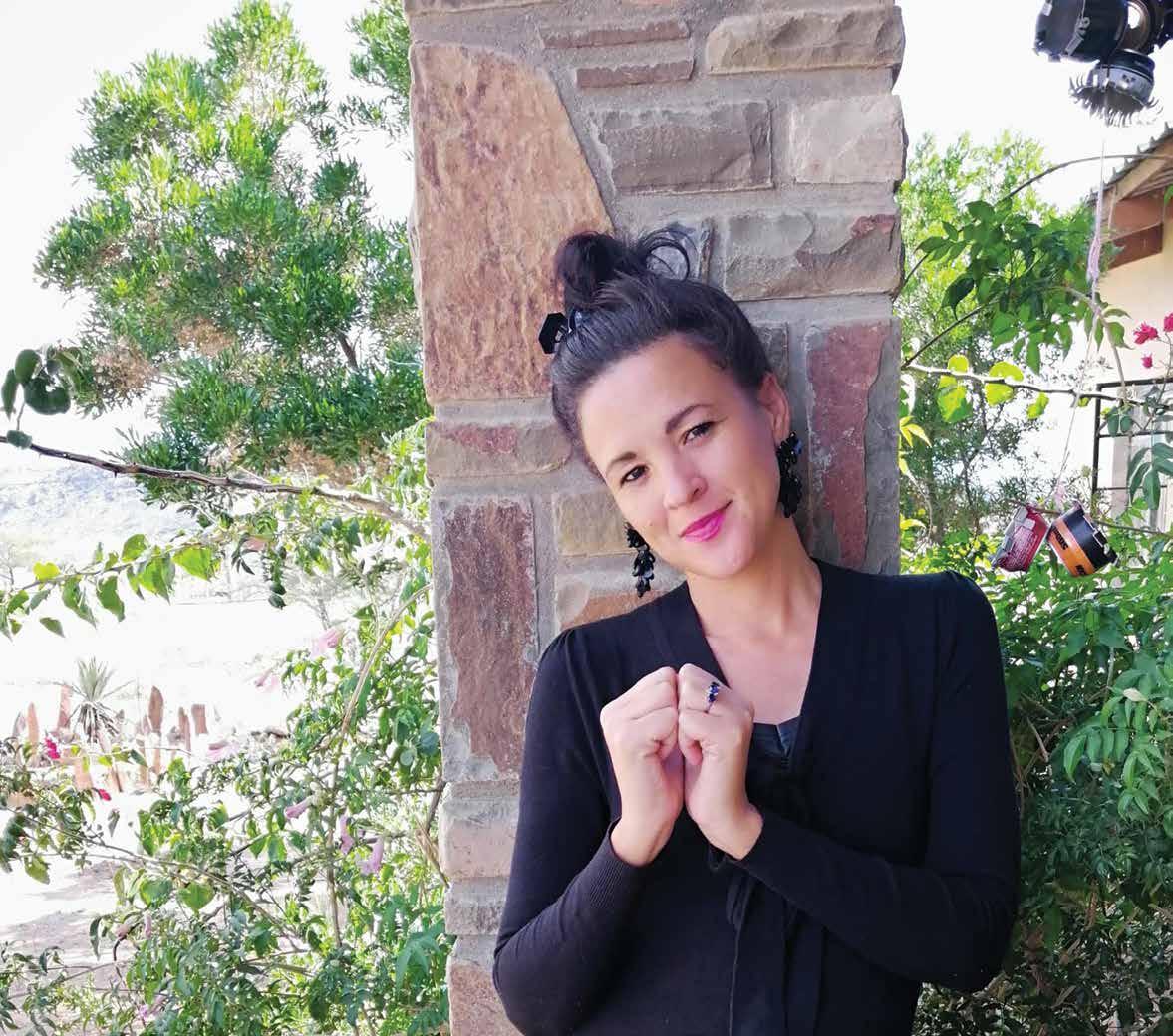
3 minute read
PERSPECTIVES ON LIVING WITH MULTIPLE SCLEROSIS with Bianca Ozcan
PERSPECTIVES ON LIVING WITH MULTIPLE SCLEROSIS
WITH BIANCA OZCAN
Bianca Ozcan is the founder and project manager of Multiple Sclerosis Namibia, an association that supports Namibians living with multiple sclerosis, or MS as it is commonly known.
Bianca held a high-profile position in banking before she felt it necessary to leave the corporate world to start Multiple Sclerosis
Namibia. As someone who lives with this disease, Bianca had experienced first-hand the lack of support available to people living with MS in Namibia, and took action.
“Living with MS has its ups and downs but I found my equilibrium in between because at some stage you have to accept the fact that you have MS, and there is nothing you can do to change that. You just have to find ways to make life easier and simpler for yourself.
“When I was first diagnosed, I didn’t know what it was and I thought, okay, it’s something that’s going to go away. I had to do some research and then I realised, this is serious. The fact that no one else knew about MS made me realise that this was something I should do, I should educate people, because it was really horrifying each time someone didn’t understand what I was talking about when I told them I had MS. “People don’t realise that it’s a chronic disease that affects the brain and the central nervous system. It attacks your nerve fibres, which causes inflammation on your nerves. Myelin starts to harden and break down, and messages can’t be passed on properly from the brain to the rest of the body. That’s when the symptoms start.
“Because it’s an invisible illness, people don’t recognise that you suffer from a disability, so you don’t get the necessary support from society. “Managing relapses and your flare ups is hard. To take care of yourself, remain calm and be patient about it all.
“The main priority of Multiple Sclerosis Namibia is to create awareness and address misunderstandings and misconceptions. We would like the public to know that it is a disability. “It is a disability of a severe nature, where you may end up completely paralysed. There is nothing anyone can do, because at the moment there is no cure.
“It’s difficult, but I love what I do. The reward is so big if someone calls me crying, saying, ‘I had a bad night,’ or ‘What shall I do now?’ I talk to the person and afterwards they’ll say, ‘I’m feeling better already.’ They know I’m going through the same thing, so we are on the same level.
“With MS, you can change from one moment to the next in a second. Sometimes you feel like you’re a different person because of the symptoms. You can go through depression, you can go through fatigue, you have a variety of flare-ups and sometimes you don’t know who you are. It’s not easy and I wouldn’t wish it on my worst enemy, but that’s just what MS is. It’s also known as the disease with a thousand faces because of the vast difference in the manifestation and severity of the illness. Because everything is controlled by the brain, different things can happen to your body.
“But we advocate – because it does help – positive living and healthy lifestyles. We’ve realised that if you exercise and follow a healthy diet, it can really improve your quality of life and help you to just be more calm.”










